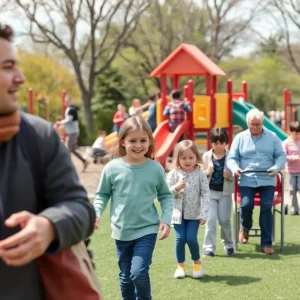COLUMBIA, S.C. – A Significant Event in South Carolina’s Justice System
In a compelling turn of events, the Supreme Court of South Carolina has recently denied a request from a man set to face the state’s first execution in over a decade. Freddie Eugene Owens is scheduled to be executed on September 20 for his part in a tragic incident back in 1997, which claimed the life of a store clerk in Greenville during a robbery. Since being sentenced to death in 1999, he has spent many years fighting against this outcome.
The Background of the Case
Owens was found unable to overturn his sentence after a ruling in July from the state’s highest court, which allowed for the restart of executions. With the dust barely settling on this ruling, a date for his execution was promptly set. Interestingly, Owens faced a unique decision regarding his method of execution: he had the choice of lethal injection, a firing squad, or the electric chair.
In a move that reflects his deep religious beliefs, Owens chose not to make this decision himself. He turned the choice over to his attorney, Emily Paavlova. Owens explained that making such a decision would feel like he was taking an active role in his own death, which contradicts his Muslim faith’s teachings against suicide.
Seeking Clarity on Execution Methods
Owens and his attorney raised concerns about the information provided by the South Carolina Department of Corrections pertaining to the drugs used for lethal injections. According to court documents, they requested more detailed evidence to assess the quality, reliability, and safety of these drugs. Specifically, they sought the actual test reports, the drugs’ expiration dates, and information on their storage conditions.
However, the court stated that the information previously provided was adequate. The South Carolina Law Enforcement Division’s Forensic Services Laboratory reportedly followed widely accepted protocols in their assessments. With this ruling, the court turned down the request for detailed drug information, affirming that Owens had sufficient knowledge to make an informed choice on his method of execution.
An Attorney’s Concerns
With the court’s denial of further information, Owens’ attorney, Emily Paavlova, expressed her lingering doubts. She shared her concern regarding whether the prison officials could guarantee that the lethal injection would not cause him extreme pain or suffering, which could be considered cruel and unusual punishment.
In her statement, Paavlova emphasized her long-standing relationship with Owens, having known him for 15 years. She stated, “Under the circumstances, and in light of the information currently available to me, I made the best decision I felt I could make on his behalf. I sincerely hope that the South Carolina Department of Corrections’ assurances will hold true.”
The Implications of the Ruling
Interestingly, if no decision had been made, Owens would have automatically faced execution by electrocution—a fate he made clear he wanted to avoid. This adds an additional layer of complexity to an already fraught situation, as decisions around life and death carry significant emotional and ethical weight.
As South Carolina approaches an execution scheduled for the first time in a decade, many are watching closely. The situation raises important questions about the methods of capital punishment, the safeguards in place to protect against inhumane treatment, and the ongoing debates surrounding the death penalty itself.
Looking Ahead
The upcoming execution has reignited discussions within the state and the wider community about the implementation of the death penalty, ensuring humane treatment of inmates, and the legal and moral implications of such severe measures. With the clock ticking down towards September 20, all eyes remain on South Carolina as the next chapter in this complex case unfolds.








